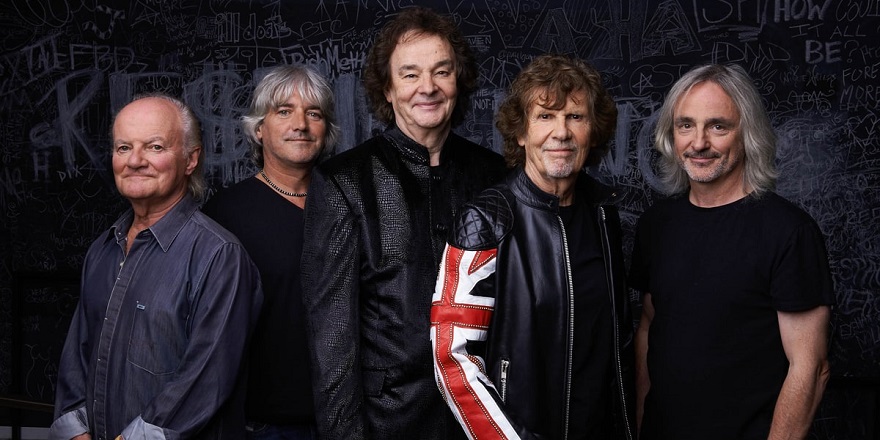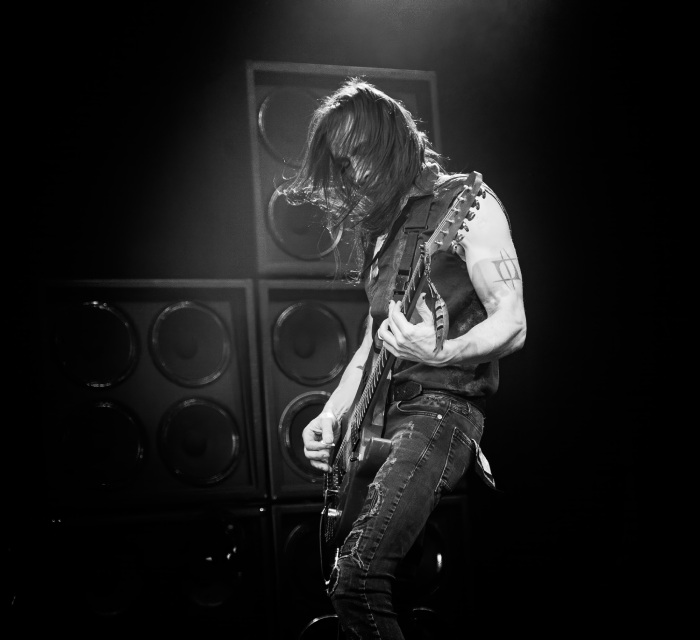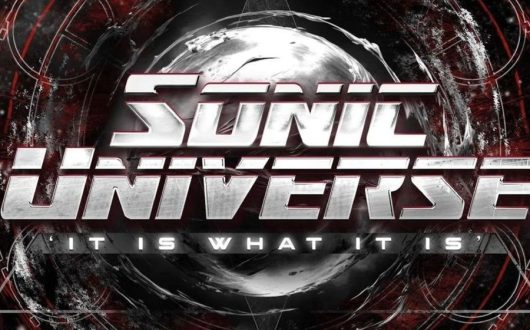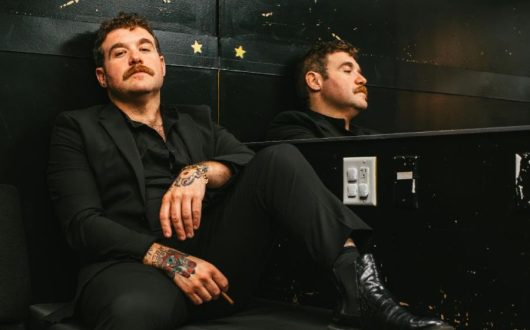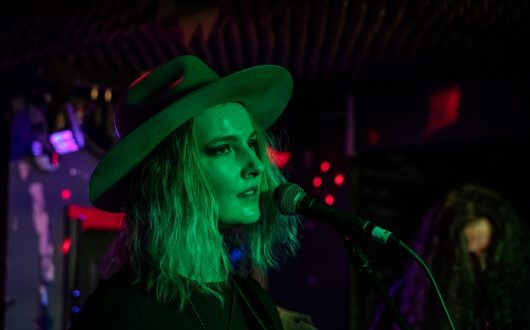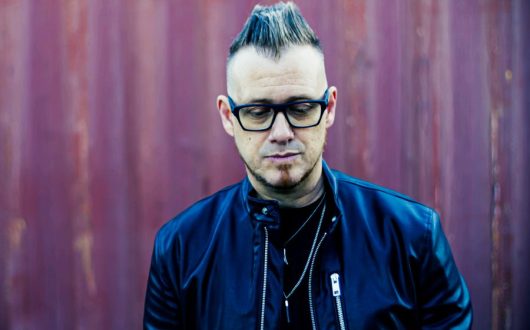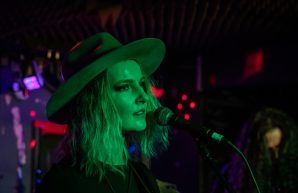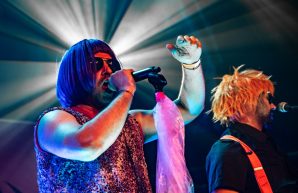Interview with Rod Argent by Adrian Hextall
With latest album ‘Still Got The Hunger’ garnering huge critical acclaim, some great appearances at major festivals and a continuation that has now seen the band working together for more years than their original incarnation managed, things have never been better for The Zombies. Adrian Hextall spoke to Rod Argent to discuss the band and the final 50th Anniversary shows of Odyssey and Oracle, including a magical night to be had at the London Palladium in September 2017.
MGM: It seems that you’re really enjoying playing as a band again, now. Being together is a reunion, longer than you were around to begin with.
RA: This incarnation of The Zombies, if you like, it’s been longer, by far. The thing is if you take the semi-pro and professional life of the original Zombies, it lasted for six years. Now, this has been going for actually sixteen years.
The thing is that we didn’t expect it to come back together at all. Call it a night. Just got together around early 2000 or late 1999 in a very, very\ casual way because I’ve done a benefit concert for John Bancroft, the jazz musician, and come and got out saying, she’s not there in time this season during my set. It was just lovely having got back together again. We decided to do half a dozen gigs just for pleasure. In a very slow gradual way, that turned into working together more and more frequently.

Eventually, after about three or four years, we found ourselves doing a lot of old Zombies catalog that we’ve never played the first time around on stage. It started to feel honest, finally, to actually take up the name of Zombies again because it felt very true to the original strategy and goals of the original band. We are doing it exactly the same now as we did then because we get excited about putting new things out there exploring new harmonies, writing new songs, etc… It got to a point where the album that we’ve released last year actually went into the Top 100 in Billboard in the States which was unlooked for, I have to say.
MGM: Talking about the album, it couldn’t be a more apt title, could it? Still Got That Hunger.
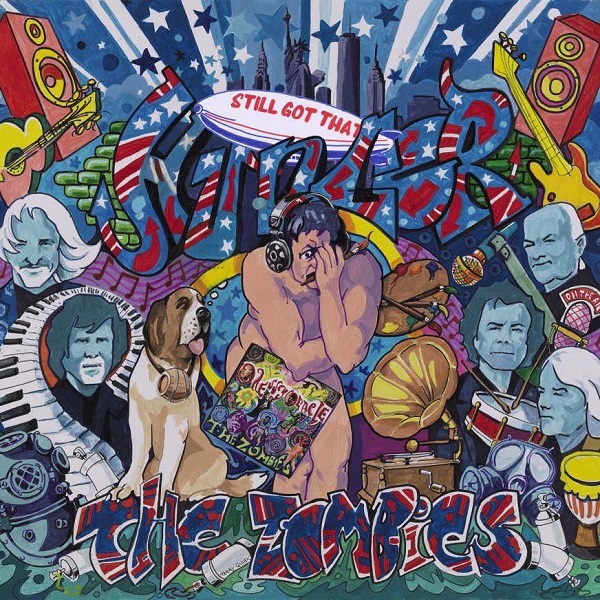
RA: No, it couldn’t. It’s a line taken from one of the songs, Chasing the Past which ironically is about the opposite really, the fact that we’re not chasing the past. Yeah. Why we’re doing it because….if we lost that feeling, I think we’d smile and say, thanks very much, it’s been a nice ride. We do still have that feeling and that excitement. It proves like a real privilege to be on stage and getting the energy back from the crowd that usually has every age in it, from a good component of really young people, as well as people that followed as all through our career. It makes you feel ageless when you’re actually on stage. It may not be absolute but when you’re actually on stage, it was just the same as when you’re 18 years old.
MGM: Looking at some of the tracks from the album as well, a lot of them have title just suggest that whole reunion thing. You’ve got, I Want You Back Again and We Were Young Again and even maybe Tomorrow .
RA: Well, strangely enough, they’re pretty disparate in terms of what the focus is of what each song is about. Colin’s song is actually about his wife, strangely enough and We Were Young Again is something the lyrics of which were written by my wife strangely enough. She sent me a card in the States…we have this funny little thing, I’m away for so much at that time, when we’re on tour. We’ve got this little thing that we’ve done for years where she just hides a few cards and I sort of come across them as I unpack my case that goes with the tour. She often takes beautiful little pieces of poetry that I haven’t seen or haven’t heard. She wrote this one and I thought…and I said to her, when did you get that from? It’s absolutely beautiful. She said, well, I wrote it. I said, well, I’ve got to write a song about it. That’s where that one came from.
But you’re right, some of the… there is that feeling in some of the songs, definitely because songs are about several things at once but at the same time, genitive to some of those songs did come from how we are and what our life is like at the moment and to do things again as well. You’re right.
MGM: In terms of the one track, I Want You Back Again, that’s re-done, isn’t it?
RA: That’s a remake of a song that I wrote back in about 1965, 66 and it was released I believe, in one or two territories as a single or it might have even be a [inaudible], I can’t even remember. I know it’s a more hit in France at that time. We often had to get around the world that we knew nothing about at that time because it was such a different world in those days. You could have a hit now in North Pole and you’d know within two hours. In those days, things took months to filter through and we much later found out that I Want You Back Again have been a small hit in France. It was a hit nowhere else but it was a track we always enjoyed. Recently, Tom Petty did a version of it and recorded it. We loved it. Colin and I thought, well, we’re doing this on stage so we approached it again and started t enjoy it so much that we wanted to record it as a one off on that last album. It’s still very true to the original but I think the piano solo has gotten a bit more depth and sophistication now. It just shows where we are now really.
MGM: Is that depth and sophistication achieved with the way you playing it or is it literally the technology that’s available to you these days?
RA: I think it’s a lot to do with the playing. I really like the sound on some of the very early tracks with those early studios and early equipment, early vintage equipment, etc… I really love the idea of being able to do the solo. I just extended it a bit, as we did on stage and do the solo on a beautiful grand piano rather than on the electric piano. It’s just in this one instance spent doing that.
MGM: Very nice. In terms of… the legacy of the band, I believe you’ve also helped unveil one of those blue plaques that you have around the country to notify that there’s something significant happened here?
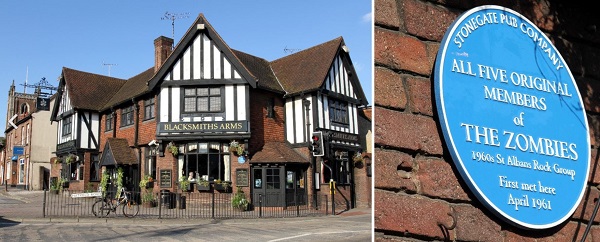
RA: That was absolutely amazing. It was started, it was instigated by a guy…a fan of ours who lives in Harpenden and he saw the whole thing through. It was just a lovely thing to have that happen, I have to say and it really brings that memory. Every time I find myself in [inaudible], I always have a little dance out here and remember the day in 1961. It’s the 1961 when we all make out beside the pub to walk down the road to a youth club where we will rehearse into the very first time.
MGM: I was going to ask you, it was 1961, was it?
RA: It was 1961. I got together a desperate group of people and none of whom knew each other. I never met Colin before. The guy who lent us all his band’s equipment was Jim Robson, the guy that you saw play bass, who, as I get on stage [inaudible] from their biggest ever albums in America. He was the founding of [inaudible] and he’s actually always in my [inaudible]. He’s four years older than me. I was completely knocked out with what he was doing with his band at that time, in a [inaudible] and vowed when I was 11 years old, that I had to be in a band one day, in 1956, when I saw him for the first time. Eventually, we got this band together. He loaned us all the gear. He showed Hugh, our drummer, his very first space drumming snare with him and we were off, that was the first day.
MGM: Fantastic. As you say, that initial incarnation lasted what? From six years or so.
RA: Yeah. Three years semi-pro and three years professional.
MGM: Do you look back on that and think even now, those six years, it was the right time to take a break. Would you think, looking back, “I wish we’d kept it going a bit longer?”
RA: Well, I’ve got mixed feelings really because the reason we broke up was not because we all hated each other. It was purely commercial, with two writers in the band, Chris White and myself because as I said, much later, we found out that we usually have a hot somewhere in the world. We’re getting a very good income through our publishers who were, unusually for the time, very honest. But the other guys weren’t making any money by that time. We’ve had one hit in the U.K. which was where we were largely based. One of the guys was getting married and the other guys just didn’t have any money. The guy that was getting married said, ‘look guys, I’ve got to move one because I just got nothing, I’m getting married I’ve got no money, so I’ve got to find another job’. Chris and I desperately wanted to stay in business. Colin thought he wanted a break from the business.
Chris and I formed a production company immediately and immediately talked about forming Argent even though Chris was a non-playing member of ours, he was still writing for the band with me, that was Chris White. Within six months, we started planning Colin’s for a solo album. By the time Time of the Season was a hit, that was 18 months later and it went to number one in America. By that time, things were well underway and it felt like a betrayal to actually just up and go back to reforming the Zombies. It really did. We turned down the big market. The one thing it did do, is make much easier for Chris and I to get things in place. We negotiated in America with The Background as the number one hit, number two or three on Billboard, I believe and it just made things easier. I didn’t resent it at that time at all. It just felt like a wonderful piece of a bump really. If we could have had that hit immediately that the album came out, then it would have been wonderful to stay together, I think at that point. I think we were in quite a rich bed of invention and enjoying what we did. We had the freedom of producing ourselves for the very first time which felt very liberating. It felt great to do that.
MGM: No surprise. Looking at what you’d manage to achieve and that sort of post-Zombies…almost post Argent period as well, you’ve done a lot of work with other artists both on their production perspective but also, I’m assuming, as a writer and a player as well.
RA: Yeah. I came off the road with Argent in ’75 and really wanted to be off the road then. But I wanted to stretch the boundaries a little bit and I thought that I’d just take anything fascinating and interesting that came up for awhile that wasn’t involved with me directly in terms of writing or whatever. That turned into quite an adventure in a very different way, staying with a lot of other bands and musicians, write a track with The Who and Who Are You. I’ve worked with a number one album of Andrew Lloyd Weber for variation which was done with Coliseum and Gary Moore, John Heisman and Bobby Thompson. It wad just very interesting and those things lead me into writing for television which I did for maybe…I can’t remember now, maybe 10, 15 years. It was very enjoyable at that time, writing, TV, films and theme music including a couple of well-talked items in the industry.
Then, I went into a period of about 12 years constant production of other artists in which my colleague, Peter Van Hooke and me, we did the initial album, his album of sold four and a half million around Europe, it’s called, Ancient Heart. We did the first album for an American artist Joshua Canton. It was quite a few years ago now…which was Top 20 album in America and he had three Top 20 singles from that. We had a very productive production period but by the end of that period, I just desperately wanted to get back to playing myself and focusing on my own thing.
It was just very nice coming to it, so I hooked up with Colin right at that time. I did some solo projects that was personal labels really. It was a very enjoyable period. It was just great for me to get back to this sort of music or period, if you like, in my life where I can get back to the original joy of the focus that I was really involved in.
MGM: It’s that sort of hunger you took to the album, hence the title. What was the experience like though? Coming back to it and recording together with your old friends and colleagues after all that time? Did it fit quickly or was it quite an unusual exercise to begin with.
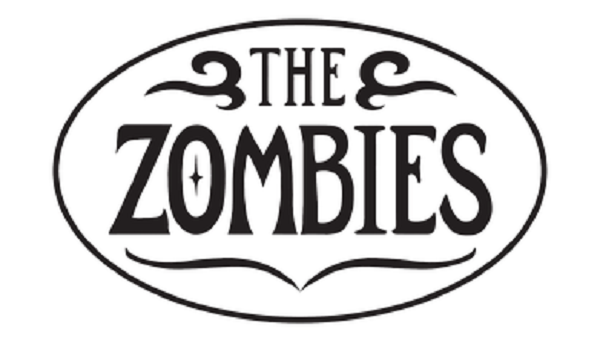
RA: It’s actually, believe it or not, in this incarnation, the third studio album…this one and the one that came before it, were the first two that would genuinely, sort of group albums but the band that really gelled to such a degree but it felt like a band thing.
Deliberately, with this album, we wanted to go back to our old way of recording. We had a fine producer, Chris Potter, who…we recorded all the tracks in five days in a beautiful state of the art in Richmond. The original idea was that we were going to play live as a group, as we have to in the old day and with Colin as the new guy. The idea was that we all played together in the sense that with live guide vocals and playing solos live and everything, over dubs will be minimal. The idea was that in the following week, we would go back and just spend 4-5 days really concentrating on the lead vocals and the solos.
But in fact, it all turned out so well and was such a blast to do in that way, that we kept all the guide vocals. They became the live master vocals and all the solos, we didn’t even go over the solos. They were as played. It became very much a game about capturing a performance as it was in the very early days because we had no options in those days. It felt really great and a very much a real group album and all that we can do. We did spend the spare time in five days working on saxophone. Those and a couple of percussion tweaks, a couple of minimal little guitar pieces over drums, very small amount to think, but basically means that we can do anything from the album on stage and it’s not a problem because studio technology was very much about capturing that performance.
MGM: Oh, it has. Yeah. I’ve seen some of the reviews for it and it’s not looking to the past as it were but it’s got the sense that the band was feeling like it was a modern album, as well.
RA: Well, that’s exactly what we sent out to try and do. If that’s the consensus, that’s wonderful.
MGM: Fantastic. That certainly seems from the reviews to be the general feeling. What about keeping this moving forward as well? Presumably you’ll be off doing the festivals again this summer?
RA: We’re going off at the end of February to do a two month tour in America before coming back and doing festivals here in Europe and then a U.K. tour around the September time. That’s the main thrust of what we’ll be doing in the year. I would love to start thinking about material for the next album at the same time, as well. I’ve got a couple of inklings and ideas for a couple of songs at the moment. I’m having a building converted into a studio. I hope that’s going to be…not the place to record the album but a great work place for me where I can work out ideas, etc…
Also, this year is the 50th anniversary of Odyssey and Oracle coming out and…or being finished, I should say and initially coming out in the U.K. I’m very proud of the album and it’s great that it had all the acclaim that it’s had.
We like to look forward. I’m very proud of the past but we’re spending this year…we’re going to concentrate this year in a very…on final performances around America and the U.K. and Europe.

RA: Once we’ve done that, our U.K. gig for that is the Palladium on…I think it’s September 29th, we’re doing London Palladium and that’s going to be our U.K. gig for that. The plan is that’s the last ever London gig for Odyssey and Oracle although it’s certainly not the last gig for our current incarnation of the band.
MGM: Fantastic. What a way to finish it thought. That’s going to feel like a real homecoming exercise, isn’t it?
RA: I hope so. We’ve done it a few times in London now and we’ve loved doing it each time. I hope we can make this last one a special night. It would be great.
The tour dates that see The Zombies travel across America this Spring and Europe in the fall can be found here:
http://www.thezombiesmusic.com/tour-dates
